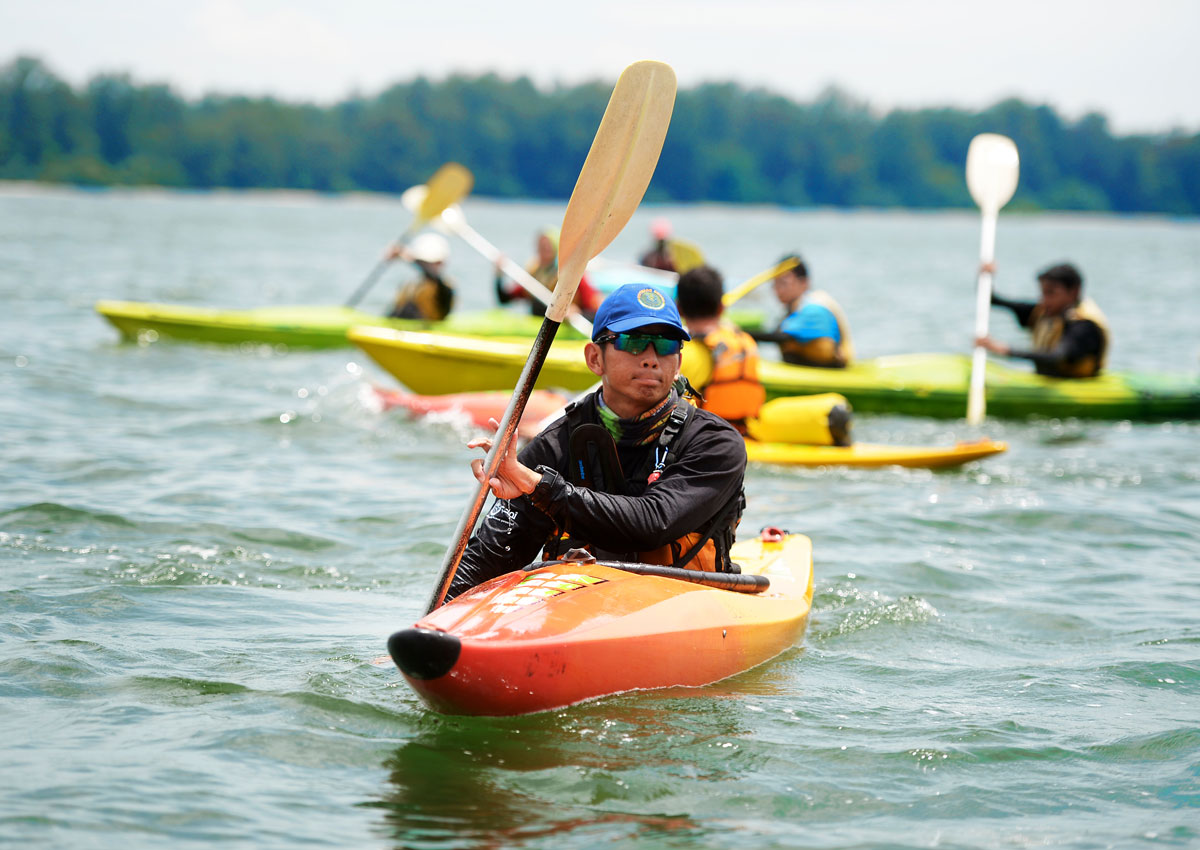Take a 15-year-old teenager’s video games away, put him in an overnight camp, and you may be surprised to find out how little he knows of the world.
“I’ve seen students not know how to peel an orange or use a lighter,” says Outward Bound Singapore (OBS) instructor, Mr Ng Kai Yong.
His role requires him to guide secondary school students who struggle when they have to spend time away from their parents and maids.
He says, laughing: “While kayaking, many of them were shocked that sea water is salty. They probably knew it, but the idea occurred to them only when they were at sea.”
Simple truths like these are why Mr Ng believes that outdoor learning experiences are important for every child, especially for those who have never had a camp experience before.
Mr Ng, 29, who started working at OBS 6½ years ago, says: “I don’t blame them because a lot of these kids are doing it for the first time. I don’t expect them to know how to tie knots straightaway, for example, so we have to teach them.”
Camps are typically between three and five days long and involve a variety of confidence, resilience and team-building activities, such as rope courses, trekking, abseiling and kayaking.
Around 14,000 students go through OBS every year, a number which is expected to rise.
Come 2020, all Secondary 3 students will have to undergo the expedition-based camp, the Education Ministry announced earlier this year.
By then, OBS’ new campus at Coney Island will be up and running, along with its two existing campuses at Pulau Ubin, increasing its capacity.
But for Mr Ng, that means a much busier time ahead as his job also requires him to train new OBS instructors.
WORRYING
With a sigh, he says: “It is quite worrying. Besides recruiting more instructors, we also need to maintain the quality of their training.
“There is a lot of commitment and responsibility involved for instructors.”
Some trainees, for example, start out not being able to swim or have a fear of heights, Mr Ng reveals.
His job is to make sure that by the end of the six to nine months of training, the instructors are ready to take on the responsibility of managing children outdoors.
Each instructor has to supervise a group of 16 students over five days of camp activities – no easy task considering the amount of planning and preparation required.
During an ongoing camp, instructors work around the clock, with a few breaks in between, says Mr Ng.
“The students sleep at 10.30pm, but the instructors sometimes stay up till 1am to discuss the next day’s activities,” he says, adding that they do get time to themselves to call their loved ones and rest.
At these camps, students are encouraged to “surrender” their mobile phones to demonstrate their commitment to the programme’s objectives.
This gives students a choice to give up their digital comforts, though some try to hide their mobile phones from the instructors.
“It is funny to see students rush to the PokeStop in our Pulau Ubin campus when they get their phones back at the end of the camp,” he says.
Instructors currently manage an average of three to four camps every month, says Mr Ng.
To help them cope, instructors enjoy some incentives – such as sugared drinks and snacks – away from the prying eyes of the camp participants, confesses Mr Ng.
“Alcohol is strictly forbidden. We are working after all,” he says.
While the going often gets tough, Mr Ng says the instructors feel rewarded when they see students challenge themselves or overcome their fears.
Every once in a while, he looks at his thick folder of letters from students, each thanking him for his dedication and guidance.
Says Mr Ng: “It makes all the hard work worth it, knowing that you’ve made a difference to their lives.”
SECRETS OF THE TRADE
1. Be sincere and patient when working with students who might not be too enthusiastic about the camp. Give them time, and they will eventually enjoy being at the camp.
2. Develop your own style of working with students, but also be accepting and open to how your colleagues do it.
3. OBS camps involve plenty of physical activities, so keepingfit is a requirement.
ngjunsen@sph.com.sg

This article was first published on Aug 28, 2016.
Get The New Paper for more stories.






